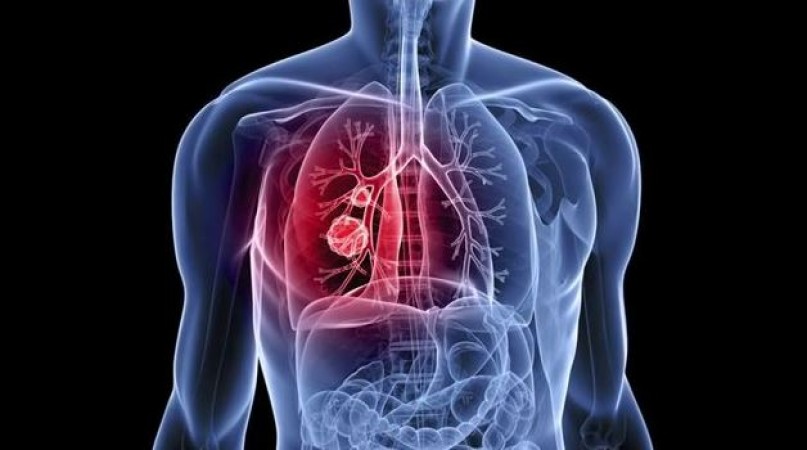
Lung cancer is a serious and life-threatening disease that affects millions of people worldwide. It occurs when abnormal cells in the lungs grow uncontrollably, forming tumors and impairing the lung's ability to function properly. In this article, we will explore ten essential precautionary measures to reduce the risk of lung cancer and promote overall lung health.
Understanding Lung Cancer:
Definition and Types of Lung Cancer:
Lung cancer can be broadly classified into two main types: non-small cell lung cancer (NSCLC) and small cell lung cancer (SCLC). NSCLC is the most common type, accounting for approximately 80-85% of cases, while SCLC constitutes around 10-15% of lung cancer diagnoses.
Causes and Risk Factors:
Several factors contribute to the development of lung cancer, with smoking being the most significant risk factor. Other risk factors include exposure to secondhand smoke, environmental pollutants, asbestos, radon gas, and a family history of lung cancer.
Precautionary Measures for Lung Cancer:
1. Quit Smoking and Avoid Exposure to Secondhand Smoke:
Smoking is the leading cause of lung cancer, and quitting smoking is the most crucial step in preventing the disease. Additionally, avoiding exposure to secondhand smoke is equally important, as it can also increase the risk of lung cancer.
2. Maintain a Healthy Diet and Lifestyle:
A balanced diet rich in fruits, vegetables, and whole grains provides essential nutrients that support lung health. Regular exercise and a healthy lifestyle can also reduce the risk of lung cancer.
3. Regular Exercise and Physical Activity:
Engaging in regular physical activity not only improves lung function but also enhances overall well-being. Incorporating exercise into daily routines can significantly lower the risk of lung cancer.
4. Reduce Exposure to Environmental Pollutants:
Limiting exposure to air pollution, industrial chemicals, and other environmental toxins can help protect the lungs from damage and lower the risk of lung cancer.
5. Monitor Your Home for Radon Levels:
Radon is a naturally occurring radioactive gas that can seep into homes from the ground. Regularly checking and mitigating high radon levels can reduce the risk of lung cancer.
6. Protect Yourself from Workplace Hazards:
For individuals working in industries with potential lung irritants or carcinogens, using appropriate protective gear and following safety guidelines is crucial.
7. Be Aware of Family History and Genetic Factors:
Individuals with a family history of lung cancer or certain genetic mutations may have a higher risk of developing the disease. Being aware of these factors can lead to early screening and preventive measures.
8. Get Vaccinated Against Infections That Increase Cancer Risk:
Some infections, such as the human papillomavirus (HPV) and hepatitis B and C viruses, can increase the risk of lung cancer. Getting vaccinated against these infections can lower the chances of developing the disease.
9. Regular Health Check-ups and Screenings:
Routine health check-ups and lung cancer screenings are essential, especially for individuals with a high risk of the disease. Early detection can significantly improve treatment outcomes.
10. Be Mindful of Early Warning Signs and Symptoms:
Being aware of common lung cancer symptoms such as persistent coughing, chest pain, hoarseness, unexplained weight loss, and difficulty breathing is essential. If these symptoms arise, seeking medical attention promptly is crucial.
The Importance of Early Detection:
Early detection of lung cancer significantly increases the chances of successful treatment and improves overall survival rates. Therefore, it is vital to undergo regular screenings and seek medical advice if any concerning symptoms manifest.
Coping with Lung Cancer Diagnosis:
Receiving a lung cancer diagnosis can be overwhelming and emotionally challenging. Seeking support from loved ones, healthcare professionals, and support groups can aid in coping with the diagnosis and treatment process.
Supporting Loved Ones with Lung Cancer:
If someone you know is diagnosed with lung cancer, offering emotional support, being a good listener, and assisting them practically can make a significant difference in their journey.
Taking precautionary measures to prevent lung cancer is essential for maintaining good lung health and overall well-being. By adopting a healthy lifestyle, avoiding risk factors, and being vigilant about potential symptoms, we can reduce the impact of this devastating disease.
Navigating Jealousy and Insecurity in Relationships: A Guide to Trust and Harmony
Unlocking Success: The Importance of Healthy Work Relationships